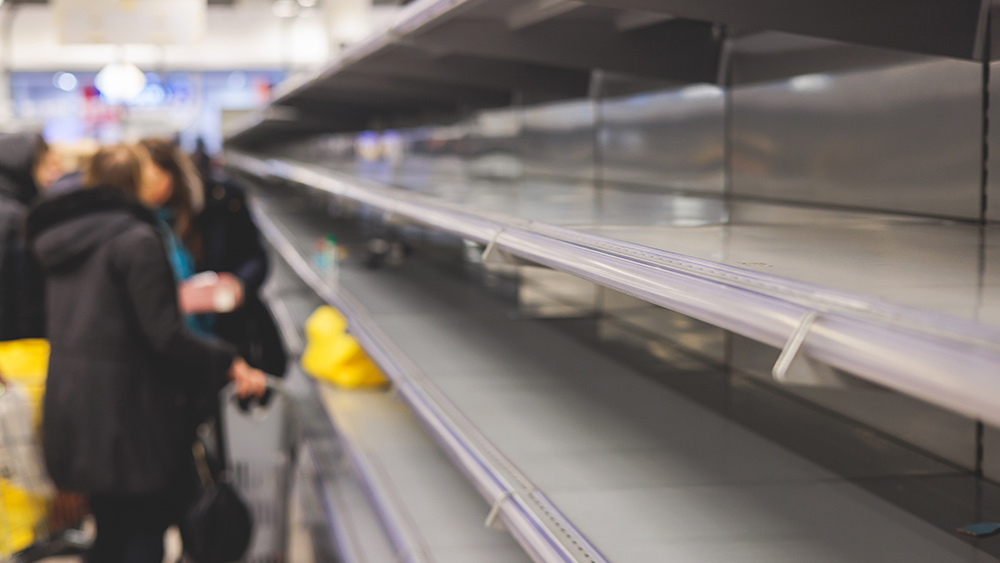 Parler
Parler Gab
Gab
Meanwhile, Home Depot has been locking up more products during the past year as a stopgap measure. "It's a triage-type scenario," said Scott Glenn, the company's vice president of asset protection. "It's stop the bleeding and give yourself some time."
According to Glenn, overall theft attempts at Home Depot continue to rise compared with pre-pandemic levels. He added that stores with aggressive theft deterrents saw reduced inventory losses stemming from theft.
While shoppers may not like items being secured, the executive commented that this actually resulted in a better outcome. This is because sales gradually rise after a high-value item is locked up because the store stays more consistently in stock.
Even food items aren't spared
The practice of locking up items for sale in different stores is not only limited to electronics and hardware. Some establishments have locked up food items such as canned meat and tuna to avoid theft-related losses. One branch of the Duane Read drugstore chain in New York City did exactly that. An article by the Daily Mail named the establishment's Port Authority Midtown Manhattan bus depot branch as the one that spearheaded the practice. (Related: NYC store locking cans of Spam and tuna in plastic cases to avoid THEFT.) Twitter user Willy Staley shared examples of the food items locked up in plastic cases on social media. "The thoroughly revamped loss-prevention regime at the Port Authority Duane Reade has finally created something of beauty, a sort of Jeff Koons homage,” he tweeted alongside a picture of a Spam can inside a plastic case. Staley subsequently posted a picture of canned ham from the same store, also inside a plastic case. He captioned the second picture: "I'd love to have one to keep, case and all – but there's only one way to do that." Forty-three-year-old Jenny Kenny, a customer who hails from Kentucky, said she could not believe the sight of "so many things in boxes." She added: "Some of these things are pretty ridiculous." Another customer, 46-year-old Dennis Snow, remarked: "To put Spam in a cage is stupid, and kind of insulting to the customers that would buy it." He argued that if the canned meat product is the most-targeted item in shoplifting attempts, anyone stealing it would most likely be looking for a quick and easy meal. Collapse.news has more stories about stores across the U.S. suffering from thefts. Watch David Knight talk about California's move to decriminalize shoplifting and thefts below. This video is from The David Knight Show channel on Brighteon.com.More related stories:
Rampant theft, ongoing supply chain disruptions leaving drug store shelves in New York City barren. Grocery stores across America are hiring security guards to combat exploding crime and product theft. British supermarkets now putting security tags on cheese to prevent shoplifting amid economic turmoil. Sources include: WSJ.com DailyMail.co.uk Brighteon.comIllegal aliens ARRESTED for looting in areas devastated by Hurricane Ian
By Mary Villareal // Share
Self-driving cars are causing traffic incidents all over San Francisco
By Arsenio Toledo // Share
New study: A simple nasal wash reduces the risk of being hospitalized for COVID by >8X
By News Editors // Share
Governments continue to obscure COVID-19 vaccine data amid rising concerns over excess deaths
By patricklewis // Share
Tech giant Microsoft backs EXTINCTION with its support of carbon capture programs
By ramontomeydw // Share
Germany to resume arms exports to Israel despite repeated ceasefire violations
By isabelle // Share










